Houthi Violence Threatens Iran-Saudi Peace Talks
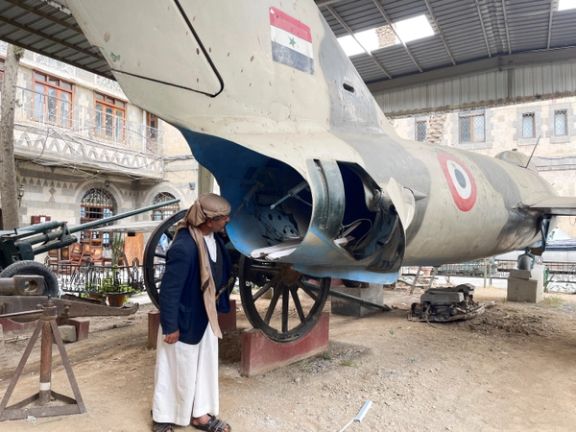
Just days after a deal between Tehran and Riyadh was struck to reduce tensions, Iran’s Yemen proxy risks jeopardizing its progress.

Just days after a deal between Tehran and Riyadh was struck to reduce tensions, Iran’s Yemen proxy risks jeopardizing its progress.
The Iran-backed Houthi militia launched an attack on the Marib province after 10 months of relative calm, throwing into doubt promises made by Tehran that it would reign in the activity of its Yemeni proxy, which has been in a bitter battle with the government-backed Saudi led coalition for eight years.
Earlier this month, Iran and Saudi Arabia agreed to re-establish diplomatic ties after Chinese-mediated talks in Beijing. The two sides agreed to reinstate embassies and missions after seven years of deadlock.
But after the latest flare-up, doubts have been raised about Tehran’s commitment to the proposals.
It is in Riyadh’s interest to end the Yemen conflict as it tries to achieve security, following several attacks on its home soil from the Houthi forces, but after the latest military action, it appears Tehran may not be so willing to fulfil its side of the deal.
Yemen has been mired in violence since the Houthis ousted the government from Sanaa in late 2014, prompting the Saudi-led coalition to intervene months later.
Marib is the last stronghold in northern Yemen of the internationally recognized government and is the country's sole gas producing region with a large oilfield.
The conflict is widely seen as a proxy war between Riyadh and Tehran. It has killed tens of thousands of people, wrecked Yemen's economy and pushed millions into hunger.
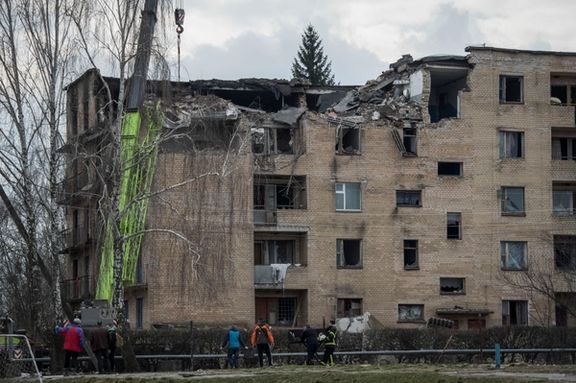
Russia launched 21 Iranian drones against civilian targets in Ukraine Wednesday, one day after China’s President Xi Jinping concluded a visit to Moscow.
At least four people were killed in the north of the country as sirens blared across the capital Kyiv and swaths of northern Ukraine overnight. The military said that it shot down 16 of the Iranian Shahed kamikaze drones but the rest got though.
Two housing blocks and an educational facility in the riverside town of Rzhyshchiv south of the capital had been partially destroyed, the State Emergency Service said on the Telegram messaging app.
"Over 20 Iranian murderous drones, plus missiles, numerous shelling incidents, and that's just in one last night of Russian terror against Ukraine," President Volodymyr Zelenskiy said on Twitter.
In an apparent reference to the Chinese leader's visit, he added: "Every time someone tries to hear the word 'peace' in Moscow, another order is given there for such criminal strikes."
Iran has supplied hundreds of killer drones to Russia since mid-2022, angering Western powers that supply air defense weapons to Ukraine to protect both military and civilian installations. Massive Russian missile and drone attacks since September aimed to destroy Ukraine’s energy infrastructure to make it hard for civilians to survive the winter.
Iran’s Supreme Leader Ali Khamenei completely denied Iran’s involvement in the war during a speech he delivered Tuesday on the occasion of the new year Nowruz.
China proposed a peace plan for Ukraine last month, which the West has largely dismissed as vague at best, and at worst a ploy to buy time for Putin to regroup his forces.
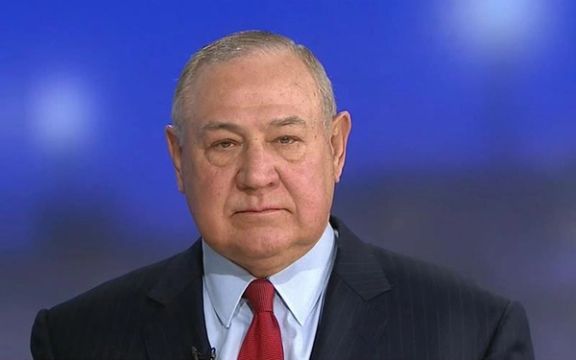
US military commanders urged the Biden Administration to expedite sales of advanced weapons to Israel to deter and prevent Iran's nuclear threat.
In an open letter published by the Jewish Institute for National Security of America, 44 American generals and admirals wrote, “To confront this pressing high-priority threat, the United States should immediately provide Israel with the advanced weapons it needs to deter and prevent a nuclear Iran.”
The US, Israel’s biggest defense supplier, was urged by the group to “expedite delivery—through outright sale, temporary lease, or prepositioning in Israel—KC-46A aerial refueling tankers, F-15I’s, F-35s, and precision-guided munitions, such as the Joint Direct Attack Munition (JDAM)”.
However, Israel, Iran’s nemesis, currently has its lowest ever approval rating from the Democrats amidst ongoing conflict with the Palestinians which have seen clashes at their worst since the second intifada 20 years ago, and a right-wing government trying to overhaul the judicial system, impose strict religious policies as well as expanding settlement building, contravening international law.
Iran says its nuclear technology is solely for civil purposes, but its policy of enriching uranium to over 80 percent has no civilian use and only a short step away from bomb-level purity of 90 percent. The nuclear threat is “one of the most pressing strategic challenges America faces today”, according to the group.
“Our military experience has taught us that demonstrating the willingness and capability to use force offers the best chance against having to do so. If a conflict does commence, it is best to possess already the weapons necessary to achieve success,” the group added.
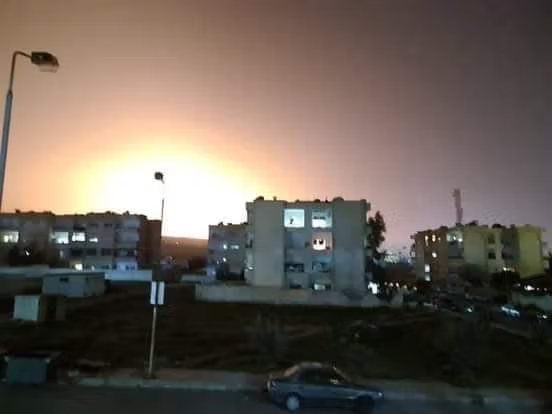
Israel hit targets near Syria's Aleppo airport Wednesday in an air strike reportedly aimed at destroying an Iranian arms depot.
The Syrian defense ministry said the air strike targeted the vicinity of Syria's Aleppo airport causing some "material damage.”
Israel has been carrying out regular attacks since 2017 against what it has described as Iran-linked targets in Syria, where Tehran's influence has grown since it began supporting President Bashar al-Assad in the civil war that started in 2011.
In the third attack on Aleppo airport in six months, Israel launched "a number of missiles from the Mediterranean Sea, west of the coastal city of Latakia, at 3:55 a.m.", the Syrian defense ministry said in a statement on state media.
Two regional intelligence sources told Reuters the strike hit an underground munitions depot linked to the nearby Nairab military airport, where missile-guided systems delivered onboard several Iranian military planes had been stored.
Iran has increased the use of Aleppo airport to deliver more arms over the past month, taking advantage of heavy air traffic as cargo planes offload relief aid in the wake of the February's deadly earthquake, Western intelligence sources say.
An Israeli strike on March 7 that knocked Aleppo airport out of service had blown up an Iranian arms cargo shipment hours after it was delivered by an Iranian plane that Damascus said was carrying aid, the Western intelligence sources say.
Israel has in recent months intensified strikes on Syrian airports and air bases to disrupt Iran's use of aerial supply lines to deliver arms to allies in Syria and Lebanon, including Lebanon's Iran-backed Hezbollah.
The strikes are part of an escalation of what has been a low-intensity conflict termed a "war between wars", the goal of which has been to slow Iran's entrenchment in Syria, Israeli military experts say.
Iran's proxy militias, led by Hezbollah, now hold sway in vast areas in eastern, southern, and northwestern Syria and in several suburbs around the capital.

The former chief of Israel's Atomic Energy Commission has warned Benjamin Netanyahu that his judicial changes will weaken Israel's position in confronting Iran.
According to the Ynet news, Zeev Snir, a Netanyahu appointee who led the atomic commission from 2015-2022, sent a letter to the Prime Minister on Sunday, expressing his concerns.
Benjamin Netanyahu has started his sixth term as prime minister by forming a coalition of right-wing religious extremists who intend to change the country's judicial rules.
Opponents of the government, who believe that the process will lead their country to a religious dictatorship, call the changes in the judiciary a "government coup" and warn against the "collapse" of democratic foundations in Israel.
In his letter, Snir said focusing on advancing the far-reaching changes to the judiciary would undercut Netanyahu’s ability to obtain the key aims he laid out, particularly in terms of countering Iran.
“Strategic competition with Iran requires enlisting all of the State of Israel’s resources and cultivating its power militarily, economically, diplomatically and socially. Iran is strengthening its position and capabilities in terms of its nuclear [program], ties with Russia and China, dealing with sanctions, and more,” he said. “All this as the West, led by the US, is busy with competing with China, the war in Europe, the fight with Russia and the energy crisis.”
Before Snir, a number of former senior officials, who were appointees of Benjamin Netanyahu, have warned about the security, economic and diplomatic consequences of judicial changes.
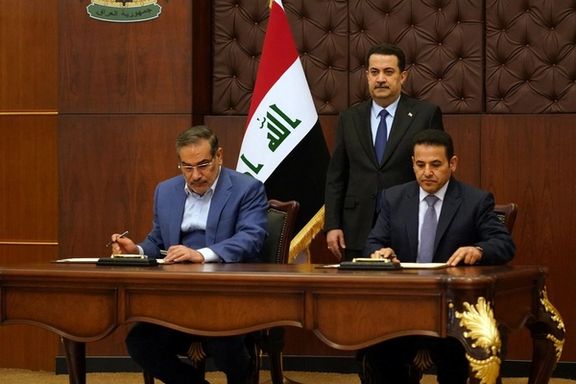
It has been a busy few days for Iran’s national security chief as he flies round the region trying to mend ties with Arab neighbors.
Instead of the country’s foreign minister, Hossein-Amir Abdollahian, it is Ali Shamkhani who has become the diplomatic face of the regime on visits spanning some of the key regional countries.
Since Shamkhani signed an agreement with Saudi Arabia in Beijing on March 10 to restore ties with Riyadh, he has embarked on regional trips to improve strained relations with Arab neighbors. A visit to the UAE and then Iraq were part of the effort to continue the momentum.
Bolstering economic ties is of course the underlying goal but it is an important message that it should be an official trusted by Iran's ruler Ali Khamenei who is the messenger on this important diplomatic tour de force.
During his Sunday meetings in Iraq, agreements were reached for the repayment of Iraqi debts by imports of goods, Shamkhani claimed. He tried to be the bearer of good news for the Iranian people as the country struggles to even get hold of basic food items amidst this great sanction-burdened economic crisis.
Shamkhani told the official government news agency IRNA Monday that his one-day trip was “productive”, hot on the heels of his visit to the United Arab Emirates a few days earlier.
Iraq owes well-over $10 billion to Iran – by some estimates almost $20 billion – for imports and natural gas and electricity. However, due to US banking sanctions on Iran, Iraq cannot pay cash dollars to Tehran.
A mechanism exists for sending essential goods, such as food and medicine in exchange for the Iraqi debt. Shamkhani said that he and the delegation accompanying him held talks with Iraqi officials to facilitate this mechanism, but he was careful in his wording not to hint at any cash transfers.
Shamkhani told IRNA: “Another step was to determine mechanisms for using resources related to Iran’s financial receivables from Iraq to purchase essential goods and to resolve currency issues related to [bilateral] trade.”
Iranian officials said that Shamkhani has also agreed on a deal with the UAE on using dirhams for bilateral transactions, although the UAE has not confirmed any such agreements. It too, must watch its step as it remains on the Financial Act Task Force gray list, which it will not want to worsen by anything less than above board in its business ties to Iran.
Over the weekend, officials in Tehran even claimed that after the deal they injected hundreds of millions of UAE dirhams into the local forex market to support the battered Iranian rial. Contrary to the claim, the rial fell on Sunday and was trading at 490,000 to the US dollar on Monday, down from 460,000 on Friday.
Iraq may yet be more of a diplomatic ally than a financial one. Since the US invasion in 2003, Iraq’s foreign currency reserves have been held by the US Federal Reserve, giving Washington significant control over Iraq’s dollar transfers.
The Central Bank of Iraq requests dollars from the Fed and then sells them to commercial banks and exchange houses at the official exchange rate through a mechanism known as the “dollar auction.”
Reports earlier this year indicated that the United States restricted dollar transfers to Iraq because of suspicions of Iranian money laundering and dollar transfers to Tehran.
These restrictions even led to a dollar scarcity on the local market in Iraq and the fall of the Iraqi dinar. Subsequently, Baghdad sent a high-level delegation to Washington in February to resolve the issue and they discussed banking and money laundering issues related to Iran.
In its desperation amid a serious financial crunch due to continuing US sanctions, the Islamic Republic hopes that better ties with Persian Gulf Arab countries can help reduce the pressure. But these countries are well aware of US sanctions and it is not clear how far they would go in accommodating the Iranian regime’s needs for an economic lifeline.
The financial pressure is also needed to convince Tehran to abide by promises it apparently made to Saudi Arabia. Chief among them is ending its military support for Yemen’s Houthis who have been fighting a Saudi coalition for eight years. This, remains to be seen.